Authors — Nicholas Rombes
-
Underground Desires
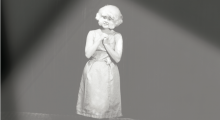
Probably like a lot of people, I loved underground cinema before I knew there was a name for it. My first encounter with the term was in a book that only used the word once, and not in relation to a certain category of films but a specific film: Underground U.S.A. (1980) directed by Eric Mitchell, who had acted in several Amos Poe films, most notably The Foreigner (1978). The book was Midnight Movies (1983) by J. Hoberman and Jonathan Rosenbaum, whose sharp, knife-like prose and generous, half- and full-page black-and-white frame enlargements worked to construct — if this is […]
by Nicholas Rombes on Jan 20, 2016 -
Blood, Simple
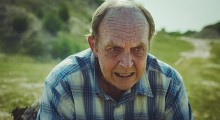
Creative freedom can be a real motherfucker. As anyone who has tried to make something — a story, a poem, a painting, a movie — can attest, the mantra “go ahead, make whatever you want” can lead to paralysis when it comes to actually creating something of distinction. Having unlimited creative options is like having none. There’s a long and rich history in cinema of self-conscious efforts to impose strictures on the filmmaking process, whether it be the Dogme 95 movement, the single-take technique (Victoria, directed by Sebastian Schipper, is a recent example), or the structural limitations imposed by the […]
by Nicholas Rombes on Oct 28, 2015 -
Creeping Time
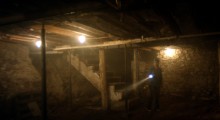
There is nothing new about Slow Cinema. From the very beginning of projected motion pictures in the late 19th century, the Lumière brothers utilized the single take, allowing for the temporal flow in the frame to coincide roughly with the audience’s experience of time. The fracturing of time through editing — borrowing from and keeping with the realist conventions of the novel — put cinema on the path of montage: the art of visual storytelling became equated with rapid movement across time (flashbacks and the implied “meanwhile…”) and space (multiple locations). Even cross-cutting — shifting back and forth between two […]
by Nicholas Rombes on Jul 23, 2015 -
The Need for Speed
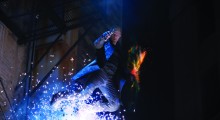
It was sheer stupid curiosity, I’ll admit it, that lead me to Jupiter Ascending on a cold, sunny afternoon in early March. With a mixture of shame and defiance, I shelled out my 10 hard-earned dollars and entered the newly carpeted theater, where the movie began to play to a grand total of three souls. I had been intrigued by the terrible reviews, the sort that actually make a film sound interesting. The comparisons to Dune (although completely misplaced, in my book) helped with the allure, as did the notion that this was a cult film in waiting. There’s also […]
by Nicholas Rombes on Apr 28, 2015 -
Without Words
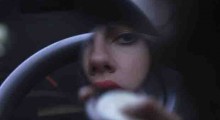
Although it’s too early to designate this a golden age of film editing, examples of unexpected, creative and sometimes flat-out radical cutting continue to suggest that the digital turn in cinema has always been, at its fundamental and structural level, about new possibilities for joining together images and sound. This column will explore the rhythms of editing in films that are exemplary — each in their own way — in the manipulation of time and space that is the foundation of editing. First up is the remarkable, wordless 13-minute-plus opening of Jonathan Glazer’s Under the Skin, which recalls René Clair’s […]
by Nicholas Rombes on Jan 21, 2015 -
Memorable Cinematic Moments of (Mostly) 2013
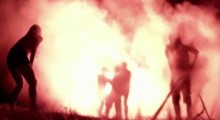
Out of the Furnace (Scott Cooper) On the surface, the scene is familiar, verging on the clichéd, and yet it’s made unfamiliar and strange though a sort of weird tension that develops around it. Rodney Baze (Casey Affleck), a troubled Iraq war veteran who chafes at working in the Braddock, Pennsylvania, steel mills like his father and brother (Christian Bale), has convinced John Petty (Willem Dafoe), a bookie who’s deep into debt with Harlan DeGroat (Woody Harrelson), to meet with DeGoat in the Ramapo Mountains area of New Jersey, where DeGroat runs a drug operation and fixes bare-knuckle fights in […]
by Nicholas Rombes on Dec 16, 2013 -
Remainders
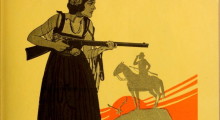
This fifth and final installment of Time Frames draws on The Media History Digital Library, a reservoir of information about early cinema that includes the sorts of magazines, journals, and trade publications that, in the pre-digital era, had only been available to those able to travel to research libraries. At over 800,000 scanned pages and growing, the collection is daunting. In Time Frames I’ll cull through and select a series of images and text from the collection to highlight key transformative moments in the film culture and industry, as well as other oddities and obscure artifacts. For this final installment I’ve focused on the remainders, those […]
by Nicholas Rombes on Nov 15, 2013 -
The Censors: Short-Haired Women and Long-Haired Men (and a Note on Hegemony)
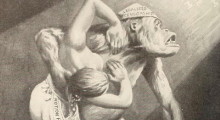
This third installment of Time Frames draws on The Media History Digital Library, a reservoir of information about early cinema that includes the sorts of magazines, journals, and trade publications that, in the pre-digital era, had only been available to those able to travel to research libraries. At over 800,000 scanned pages and growing, the collection is daunting. In Time Frames I’ll cull through and select a series of images and text from the collection to highlight key transformative moments in the film culture and industry, as well as other oddities and obscure artifacts. Note: click on images to enlarge. Prior to the publication of the […]
by Nicholas Rombes on Oct 7, 2013 -
Meta-Vamping
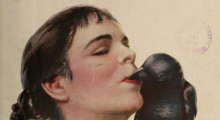
This second installment of Time Frames draws on The Media History Digital Library, a reservoir of information about early cinema that includes the sorts of magazines, journals, and trade publications that, in the pre-digital era, had only been available to those able to travel to research libraries. At over 800,000 scanned pages and growing, the collection is daunting. In Time Frames I’ll cull through and select a series of images and text from the collection to highlight key transformative moments in the film culture and industry, as well as other oddities and obscure artifacts. In the pre-Code, chaotic world of […]
by Nicholas Rombes on Sep 19, 2013 -
The Invention of Paramount Pictures
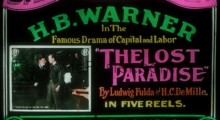
The Media History Digital Library is a goldmine of information about early cinema, the sorts of magazines, journals, and trade publications that, in the pre-digital era, had only been available to those able to travel to research libraries. At over 800,000 scanned pages and growing, the collection is daunting, and what I plan to do in Time Frames, a five-part series, is cull through and select a series of images and text from the collection to highlight key transformative moments in the film culture and industry, as well as other oddities and obscure artifacts. It’s perhaps impossible for us not […]
by Nicholas Rombes on Sep 5, 2013
